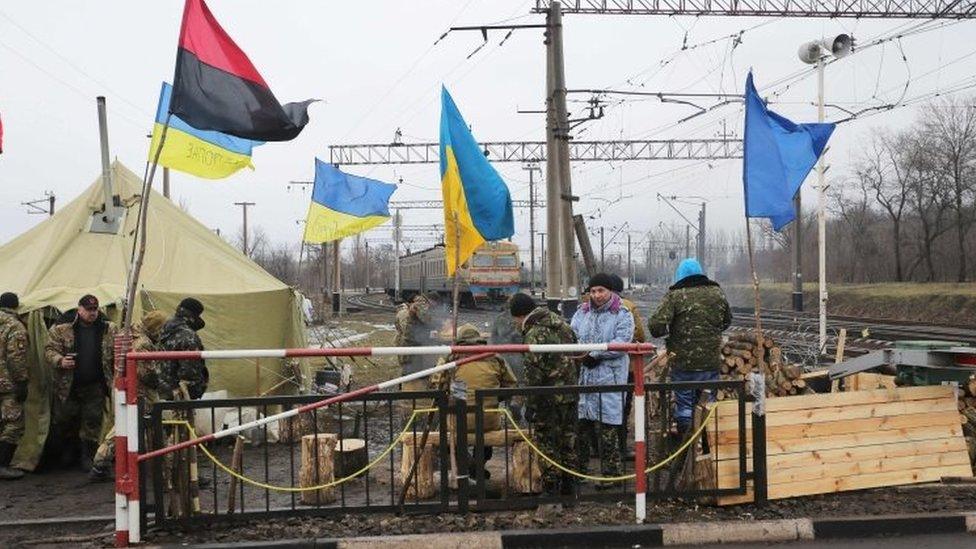Ukraine halts all goods traffic with rebel-held east
- Published

Ukrainian war veterans and activists have for weeks been blocking rail lines and roads in the east
Ukraine has halted the movement of all goods in and out of areas seized by pro-Russian separatists in the east of the country.
The move was announced after an urgent meeting of Ukraine's National Security and Defence Council in Kiev.
It follows weeks of unofficial action by war veterans and activists, who have been blocking roads and rail lines.
The blockade is hugely damaging to industry in the rebel-held east - but also to the wider Ukrainian economy.
'Trade in blood'
On Wednesday, the council said it decided to act because of a "sharp escalation of Russia's aggression against Ukraine and the seizure of Ukrainian businesses" by the rebels in the Donetsk and Luhansk regions.
It said the decision would remain in force until the separatists handed back control of the businesses and also complied with the 2015 peace agreements signed in Minsk.
War veterans, activists and some lawmakers had for weeks demanded that all transport links with the rebels be cut, describing any business activity with the east as "trade in blood".
The veterans had also repeatedly clashed with police sent to dismantle makeshift blockade points.
The unofficial blockade has cut off vital links between industrial plants on either side of the conflict's frontline.
As a result, operations at several steel and coal plants on the separatist side have been suspended.
The blockade also puts at risk Ukraine's energy supply.
Ukraine is dependent on anthracite from the rebel-held areas, while Donetsk and Luhansk need coke produced in Ukraine's government-controlled regions.
Earlier this week, rebel leaders announced that they started shipping coal to Russia.
More than 10,000 people have died since the Russian-backed rebels seized parts of the Donetsk and the Luhansk region in April 2014, triggering clashes with Ukrainian forces.
In March 2014, Russia annexed Ukraine's southern Crimea peninsula.
